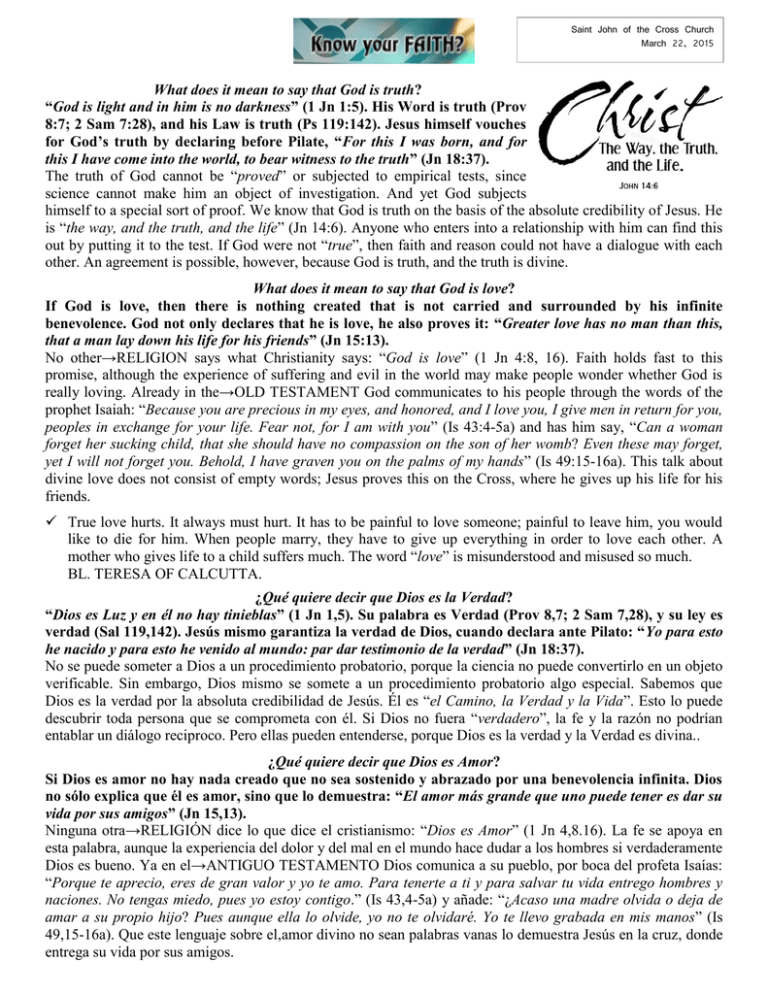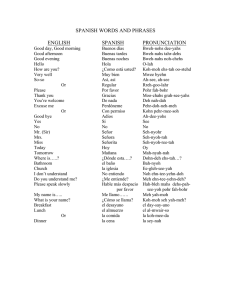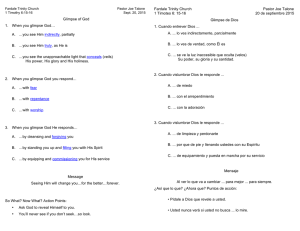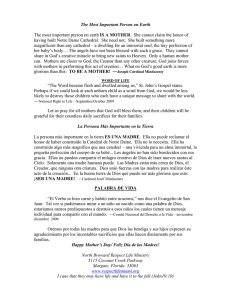What does it mean to say that God is truth? - St John
Anuncio

Saint John of the Cross Church March 22, 2015 What does it mean to say that God is truth? “God is light and in him is no darkness” (1 Jn 1:5). His Word is truth (Prov 8:7; 2 Sam 7:28), and his Law is truth (Ps 119:142). Jesus himself vouches for God’s truth by declaring before Pilate, “For this I was born, and for this I have come into the world, to bear witness to the truth” (Jn 18:37). The truth of God cannot be “proved” or subjected to empirical tests, since science cannot make him an object of investigation. And yet God subjects himself to a special sort of proof. We know that God is truth on the basis of the absolute credibility of Jesus. He is “the way, and the truth, and the life” (Jn 14:6). Anyone who enters into a relationship with him can find this out by putting it to the test. If God were not “true”, then faith and reason could not have a dialogue with each other. An agreement is possible, however, because God is truth, and the truth is divine. What does it mean to say that God is love? If God is love, then there is nothing created that is not carried and surrounded by his infinite benevolence. God not only declares that he is love, he also proves it: “Greater love has no man than this, that a man lay down his life for his friends” (Jn 15:13). No other→RELIGION says what Christianity says: “God is love” (1 Jn 4:8, 16). Faith holds fast to this promise, although the experience of suffering and evil in the world may make people wonder whether God is really loving. Already in the→OLD TESTAMENT God communicates to his people through the words of the prophet Isaiah: “Because you are precious in my eyes, and honored, and I love you, I give men in return for you, peoples in exchange for your life. Fear not, for I am with you” (Is 43:4-5a) and has him say, “Can a woman forget her sucking child, that she should have no compassion on the son of her womb? Even these may forget, yet I will not forget you. Behold, I have graven you on the palms of my hands” (Is 49:15-16a). This talk about divine love does not consist of empty words; Jesus proves this on the Cross, where he gives up his life for his friends. True love hurts. It always must hurt. It has to be painful to love someone; painful to leave him, you would like to die for him. When people marry, they have to give up everything in order to love each other. A mother who gives life to a child suffers much. The word “love” is misunderstood and misused so much. BL. TERESA OF CALCUTTA. ¿Qué quiere decir que Dios es la Verdad? “Dios es Luz y en él no hay tinieblas” (1 Jn 1,5). Su palabra es Verdad (Prov 8,7; 2 Sam 7,28), y su ley es verdad (Sal 119,142). Jesús mismo garantiza la verdad de Dios, cuando declara ante Pilato: “Yo para esto he nacido y para esto he venido al mundo: par dar testimonio de la verdad” (Jn 18:37). No se puede someter a Dios a un procedimiento probatorio, porque la ciencia no puede convertirlo en un objeto verificable. Sin embargo, Dios mismo se somete a un procedimiento probatorio algo especial. Sabemos que Dios es la verdad por la absoluta credibilidad de Jesús. Él es “el Camino, la Verdad y la Vida”. Esto lo puede descubrir toda persona que se comprometa con él. Si Dios no fuera “verdadero”, la fe y la razón no podrían entablar un diálogo reciproco. Pero ellas pueden entenderse, porque Dios es la verdad y la Verdad es divina.. ¿Qué quiere decir que Dios es Amor? Si Dios es amor no hay nada creado que no sea sostenido y abrazado por una benevolencia infinita. Dios no sólo explica que él es amor, sino que lo demuestra: “El amor más grande que uno puede tener es dar su vida por sus amigos” (Jn 15,13). Ninguna otra→RELIGIÓN dice lo que dice el cristianismo: “Dios es Amor” (1 Jn 4,8.16). La fe se apoya en esta palabra, aunque la experiencia del dolor y del mal en el mundo hace dudar a los hombres si verdaderamente Dios es bueno. Ya en el→ANTIGUO TESTAMENTO Dios comunica a su pueblo, por boca del profeta Isaías: “Porque te aprecio, eres de gran valor y yo te amo. Para tenerte a ti y para salvar tu vida entrego hombres y naciones. No tengas miedo, pues yo estoy contigo.” (Is 43,4-5a) y añade: “¿Acaso una madre olvida o deja de amar a su propio hijo? Pues aunque ella lo olvide, yo no te olvidaré. Yo te llevo grabada en mis manos” (Is 49,15-16a). Que este lenguaje sobre el,amor divino no sean palabras vanas lo demuestra Jesús en la cruz, donde entrega su vida por sus amigos.




